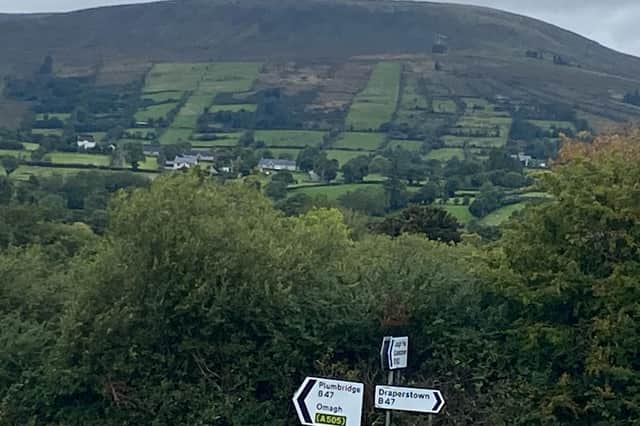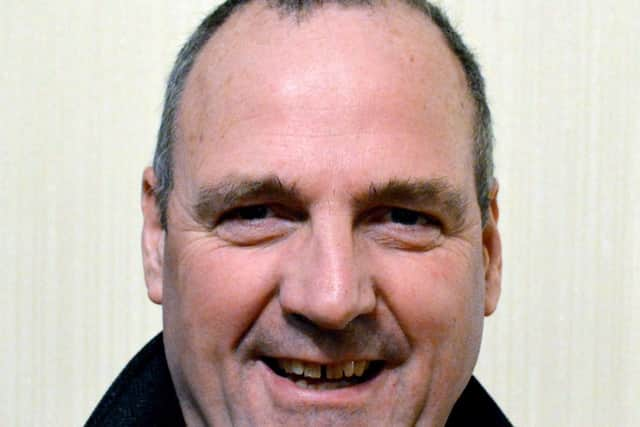The boundary fences


Since moving to the congregations of Tobermore and Draperstown in County Londonderry, I have been learning about the local area.
From Tobermore to Draperstown on your right hand side sit part of the Sperrin Mountains where you will see something interesting about the landscape.
Advertisement
Advertisement
Running upwards from the Moyola River to the top of the mountain are these lines of hedges, or fences that mark out boundaries. Locally they are referred to as ‘Ladder Farms.’ These farms were so named because they look like ladders running up the sides of the mountain.


This man-made change to the landscape came around the start of the 1800s when the new landlord reorganised the land into farms laid out in strips with straight marches, or boundaries. The Bible tells us that God has created boundaries relevant to our world, our daily lives and to farming. Psalm 104:9, for example says, “You set a boundary they cannot cross; never again will they cover the earth,” reminding us that the earth will never be flooded. While still devastating, in Pakistan large numbers of farmers lost their farms recently to catastrophic flooding, but the whole earth is not subsumed.
Boundaries, march ditches and fences should remind us of God, as summed up by the prophet Jeremiah. ‘Should you not fear me?” declares the Lord. “Should you not tremble in my presence? I made the sand a boundary for the sea, an everlasting barrier it cannot cross. The waves may roll, but they cannot prevail; they may roar, but they cannot cross it’” (Jeremiah 5:22).
We can feel safe because of the different boundaries that God has put in place for our protection. Can we say like the Psalmist, “The boundary lines have fallen for me in pleasant places; surely I have a delightful inheritance…” (Psalm 16:6.)
Advertisement
Advertisement
In the Old Testament God set boundaries to keep the sinful people and a holy God at a distance when they came to worship Him in the temple at Jerusalem. The sacrificial death and resurrection of Jesus Christ removed those boundaries so that by faith in Christ people can now be united with God.
In Psalm 16:11, King David writes, “You make known to me the path of life; you will fill me with joy in your presence, with eternal pleasures at your right hand.” When you take that step of faith and enter a living relationship with Jesus Christ it brings a sense of security for your soul, even though you have difficult things going on in your life.
David, the sheep farmer, during his own difficulties knew this when he said in Psalm 16:8, “I have set the Lord always before me; because he is at my right hand, I shall not be shaken.”
There are so many things right now that could shake us socially, economically, and environmentally. Will you come to that place of trusting Him to be your personal Saviour? It is then that you will have deep security and contentment and will be able to say, “God is our refuge and strength, an ever-present help in trouble. Therefore, we will not fear, though the earth give way and the mountains fall into the heart of the sea” (Psalm 46:1-2).
Advertisement
Advertisement
Psalm 16 is well worth reading because there we discover that whatever the circumstances of life, we can still have contentment and peace through our personal faith in Jesus Christ.
Trevor Boyd is the minister of the congregations of Tobermore and Draperstown in the shadow of the Sperrin Mountains in County Londonderry. Married to Barbara, the father of three is a sheep breeder and previously sold animal health products across Northern Ireland.
If you would like to talk to someone about any of the issues raised in this article, please email Rev Kenny Hanna, PCI’s Rural Chaplain at [email protected] or call him on 07938 488 372.